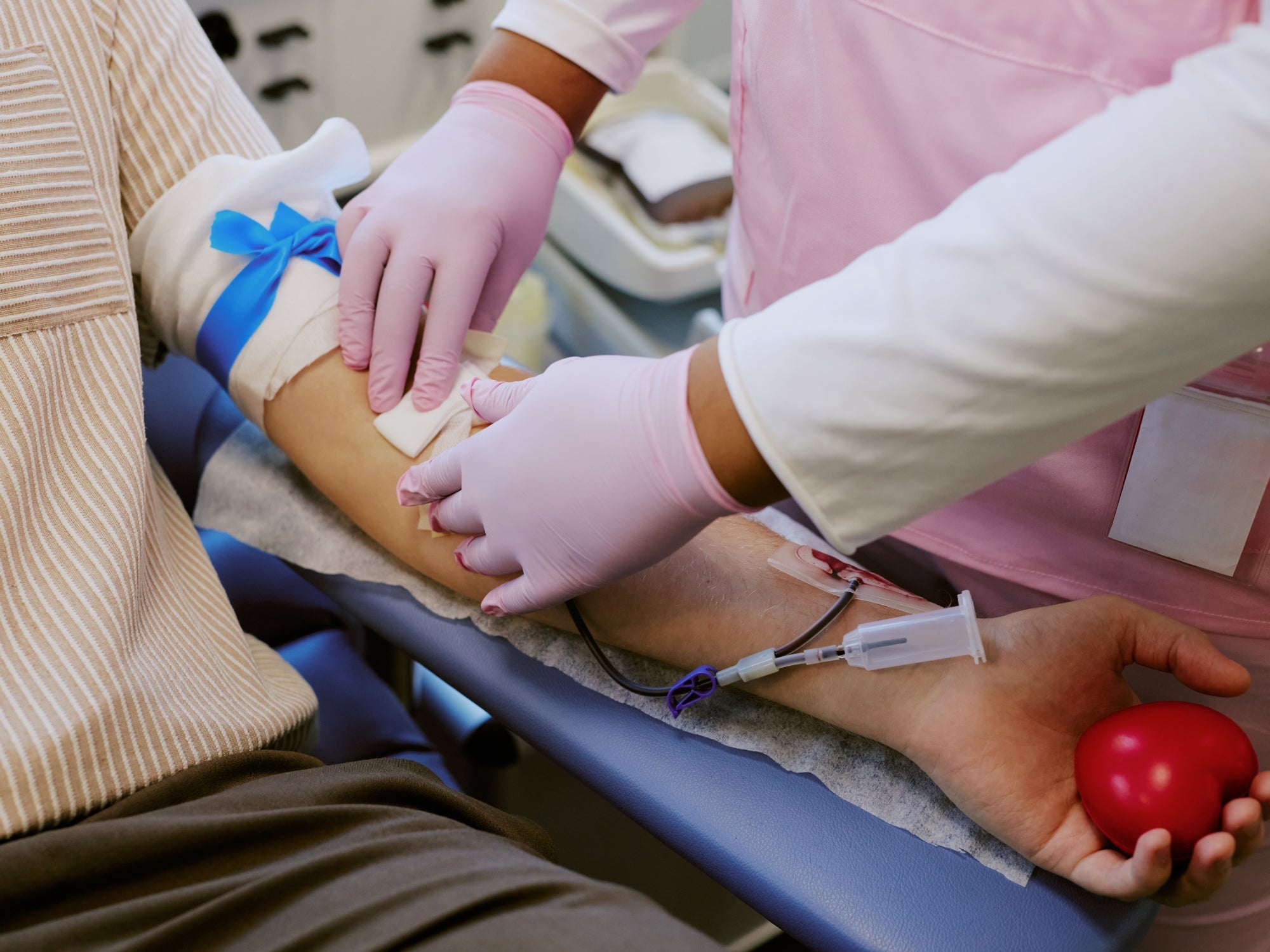In our previous article, "Iron Deficiency in Men: Causes, Symptoms, and Solutions", we explored how this often-overlooked condition affects men's health. Today, we're taking the next step by focusing on prevention—how to stay "Iron Strong" and avoid anemia before it starts.
Anemia occurs when your body does not have enough healthy red blood cells to transport adequate amounts of oxygen to your tissues. While often considered mainly a women's health concern, anemia affects approximately 5.5% of men in the United States, compared to 13.0% in women, according to the CDC [1]. Though less common in men, the consequences can be just as severe, including fatigue, weakness, and potentially serious complications.
Iron deficiency is the first stop on the road that can lead to anemia. By implementing the prevention strategies below, you can maintain optimal iron levels and avoid progressing to full anemia. Here's how to stay Iron Strong.
1. Power Your Plate: Strategic Nutrition
The foundation of Iron Strong health is a diet rich in iron sources tailored to men's nutritional needs:
Prioritize Heme Iron Sources: Animal-based sources like lean red meat, beef liver, poultry, and fish contain heme iron, which your body absorbs more efficiently than plant-based iron. For men who exercise regularly or have active lifestyles, these protein-rich foods serve double duty by supporting both iron levels and muscle maintenance.
Balance with Plant-Based Iron: Even if you're not vegetarian, including plant sources like beans, lentils, tofu, and dark leafy greens provides additional non-heme iron to complement animal sources.
Vitamin C Boosters: Vitamin C’s effect on iron absorption is most noticeable for nonheme iron, which is found in plant-based foods [2]. So add bell peppers to your veggie stir-fry, or squeeze lemon on your spinach. This strategic pairing can noticeably increase iron absorption.
2. Know Your Blockers: Foods and Habits That Inhibit Iron Absorption
Being Iron Strong means not just consuming iron but ensuring your body can use it effectively:
Coffee and Tea Timing: The tannins in coffee and tea can significantly reduce iron absorption. For men who rely on caffeine to fuel busy days, timing matters—consume these beverages at least an hour before or after iron-rich meals rather than with them.
Calcium Considerations: While calcium is essential for bone health, it can interfere with iron absorption when consumed simultaneously. Space your calcium supplements or calcium-rich foods like dairy approximately two hours apart from iron-rich meals.
Medication Awareness: Common medications like antacids and certain antibiotics can impact iron absorption. If you take these regularly, consult your healthcare provider about optimal medication timing.
3. Beyond Diet: Lifestyle Factors for Iron Strong Health
Maintaining Iron Strong status goes beyond what's on your plate:
Strategic Exercise: Regular physical activity supports overall cardiovascular health, which helps oxygen circulation throughout your body. However, intense endurance training can sometimes impact iron stores, so balance is key for active men.
Hydration Discipline: Proper hydration supports blood volume and circulation. For men who work in physically demanding environments or exercise regularly, maintaining adequate fluid intake is particularly important for overall blood health.
Alcohol Moderation: Excessive alcohol consumption can damage the stomach lining and intestines, potentially leading to bleeding that causes iron loss. It can also impair your body's ability to absorb nutrients, including iron [3].
4. Hidden Threats: Medical Conditions That Deplete Iron
Certain health conditions, some more common in men, can increase your risk of iron deficiency:
Gastrointestinal Issues: Conditions like ulcers, hemorrhoids, or inflammatory bowel disease can cause chronic blood loss, making them the leading cause of iron deficiency in men [4]. Regular screening is crucial for men over 50.
Medication Side Effects: Long-term use of aspirin, NSAIDs, or blood thinners—common for men with heart disease risk factors—can lead to microscopic bleeding and gradual iron depletion.
Colon Cancer Awareness: Iron deficiency anemia can be an early warning sign of colon cancer. For men, especially those over 45, unexplained iron deficiency warrants prompt investigation.
5. Prevention Through Detection: When and How to Test
Regular monitoring is crucial for maintaining Iron Strong status:
Routine Blood Work: Men should include complete blood count (CBC) tests in their annual physical exams, especially after age 50 when anemia risk increases.
Monitor Symptoms: Fatigue, shortness of breath during exercise, or unexplained performance declines can be early warning signs of dropping iron levels.
Technology Solutions: Tools like the Ruby app use fingernail selfie technology to estimate iron levels non-invasively, allowing you to track your Iron Score over time and detect potential issues before they progress to anemia.
6. Supplementation: The Right Way
When dietary changes aren't enough, supplements can help maintain Iron Strong status:
Medical Guidance First: Always consult a healthcare provider before starting iron supplements, as excess iron can be harmful, especially for men who typically have higher baseline iron levels than women.
Optimal Timing: Take iron supplements on an empty stomach when possible, but if they cause stomach discomfort, taking them with a small amount of food is acceptable.
Supplement Selection: Look for supplements containing ferrous sulfate, ferrous gluconate, or ferrous fumarate, which are more readily absorbed [5].
Conclusion
Staying Iron Strong is about more than just avoiding anemia—it's about optimizing your energy, performance, and overall health. By implementing these prevention strategies, you can maintain healthy iron levels and reduce your risk of developing iron deficiency anemia.
Remember that anemia is not just a women's health issue. Men face unique risk factors and can experience significant quality of life improvements by maintaining optimal iron levels. Whether you're a power athlete looking to maximize performance, a busy professional battling fatigue, or simply someone who wants to feel their best, prioritizing your blood health is a crucial step.
Take control of your blood health today. Download the Ruby app to start monitoring your Iron Score, make strategic dietary adjustments, and share this article with the important men in your life who deserve to be Iron Strong, too.
References
[1] Centers for Disease Control and Prevention. (2023). Anemia Prevalence in the United States.
[2] National Institutes of Health. (2021). Vitamin C - Health Professional Fact Sheet.
https://ods.od.nih.gov/factsheets/VitaminC-HealthProfessional/
[3] National Heart, Lung, and Blood Institute. (2023). Anemia Causes. https://www.nhlbi.nih.gov/health/anemia/causes
[4] Onlymyhealth. (2023). Causes and Symptoms of Anaemia in Men. https://www.onlymyhealth.com/causes-and-symptoms-of-anaemia-in-men-1719216466
[5] Verywellhealth. (2023). Treatments for Iron Deficiency Anemia. https://www.verywellhealth.com/treatments-for-iron-deficiency-anemia-3522500





Leave a comment
This site is protected by hCaptcha and the hCaptcha Privacy Policy and Terms of Service apply.